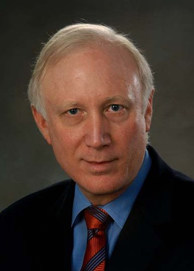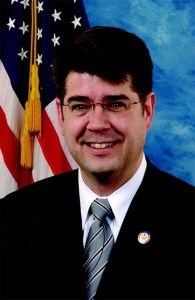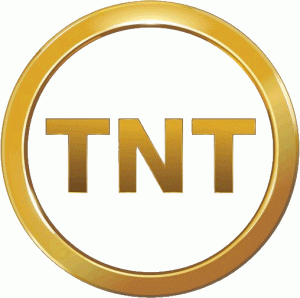 So who is for the ABC Plan? Primarily phone companies, their business partners, and dollar-a-holler astroturf friends:
So who is for the ABC Plan? Primarily phone companies, their business partners, and dollar-a-holler astroturf friends:
American Consumer Institute: SourceWatch called them a telecom industry-backed astroturf group. Karl Bode from Broadband Reports discovered “the institute’s website is registered to ‘Stephen Pociask, a telecom consultant and former chief economist for Bell Atlantic [today Verizon].” The group, claiming to focus “on economic policy issues that affect society as a whole,” spends an inordinate amount of its time on telecommunications hot button issues, especially AT&T and Verizon’s favorites: cable franchise reform and opposition to Net Neutrality.
Anna Marie Kovacs: Determining what is good for Wall Street is her business, as founder and President of Regulatory Source Associates, LLC. RSA provides investment professionals with analysis of federal and state regulation of the telecom and cable industries.

Dollar-a-holler support?
Consumer Awareness Project: A relatively new entrant, CAP is AT&T’s new darling — a vocal advocate for AT&T’s merger with T-Mobile. But further digging revealed more: the “group” is actually a project of Washington, D.C. lobbying firm Consumer Policy Solutions, which includes legislative and regulatory advocacy work and implementation of grassroots mobilization.
That is the very definition of interest group-“astroturf.”

Randolph May from the Free State Foundation supports "state's rights," but many of them want no part of a plan his group supports.
Free State Foundation: A misnamed conservative, “states rights” group. Leader Randolph May loves the ABC Plan, despite the fact several individual states are asking the FCC not to impose it on them.
Hispanic Technology & Telecommunications Partnership: Whatever Verizon and AT&T want, HTTP is also for. The group was embroiled in controversy over its unflinching opposition to Net Neutrality and love for the merger of AT&T and T-Mobile. Its member groups, including MANA and LULAC, are frequent participants in AT&T’s dollar-a-holler lobbying endeavors.
Robert J. Shapiro: Wrote an article for Huffington Post calling the ABC Plan worth consideration. Also worth mentioning is the fact he is now chairman of what he calls an “economic advisory firm,” which the rest of the world calls a run-of-the-mill D.C. lobbyist firm — Sonecon. It comes as no surprise AT&T is a client. In his spare time, Shapiro also writes reports advocating Internet Overcharging consumers for their broadband service.
Indiana Exchange Carrier Association: A lobbying group representing rural Indiana telephone companies, primarily owned by TDS Telecom. It’s hardly a surprise the companies most likely to benefit from the ABC Plan would be on board with their support.
Indiana Telecommunications Association: A group of 40 telephone companies serving the state of Indiana. For the aforementioned reasons, it’s no surprise ITA supports the ABC Plan.
Information Technology and Innovation Foundation: Reuters notes this group received financial support from telecommunications companies, so lining up behind a plan those companies favor comes as little surprise. ITIF also believes usage caps can deter piracy, so they’re willing to extend themselves way out in order to sell the telecom industry’s agenda.
Internet Innovation Alliance: Another group backed by AT&T, IIA also funds Nemertes Research, the group that regularly predicts Internet brownouts and data tsunamis, which also hands out awards to… AT&T and Verizon.

The Indiana Exchange Carrier Assn. represents the phone companies that will directly benefit from the adoption of the ABC Plan.
Bret Swanson: He penned a brief note of support on his personal blog. When not writing that, Swanson’s past work included time at the Discovery Institute, a “research group” that delivers paid, “credentialed” reports to telecommunications company clients who waive them before Congress to support their positions. Swanson is a “Visiting Fellow” at Arts+Labs/Digital Society, which counted as its “partners” AT&T and Verizon.
Minority Media & Telecom Council: Tries to go out of its way to deny being affiliated or “on the take” of telecom companies, but did have to admit in a blog posting it takes money from big telecom companies for “conference sponsorships.” Some group members appear frequently at industry panel discussions, and mostly advocate AT&T’s various positions, including strong opposition to reclassify broadband as a utility service.
MMTC convened a Broadband and Social Justice Summit earlier this year that featured a range of speakers bashing Net Neutrality, and the group’s biggest highlighted media advisory on its website as of this date is its support for the merger of AT&T and T-Mobile. Yet group president David Honig claims he can’t understand why some consumer groups would suspect groups like his of engaging in dollar-a-holler advocacy, telling The Hill, “We’ve seen no examples of reputable organizations that do things because of financial contributions. It’s wrong to suggest such things.”
Mobile Future: Sponsored by AT&T, Mobile Future curiously also includes some of AT&T’s best friends, including the Asian Business Association, LULAC, MANA, the National Black Chamber of Commerce, and the United States Hispanic Chamber of Commerce.
Montana Independent Telecommunications Systems: Primarily a group for Montana’s independent telephone companies, who will benefit enormously from the ABC Plan.

What major corporate entity does not belong to this enormous advocacy group?
The National Grange: A group with a long history advocating for the interests of telephone companies. Over the years, the National Grange has thrown its view in on Verizon vs. the RIAA, a request for Congress to support industry friendly legislation, a merger between Verizon and NorthPoint Communications, and USF issues.
The Keep USF Fair Coalition was formed in April 2004. Current members include Alliance for Public Technology, Alliance For Retired Americans, American Association Of People With Disabilities, American Corn Growers Association, American Council of the Blind, California Alliance of Retired Americans, Consumer Action, Deafness Research Foundation, Gray Panthers, Latino Issues Forum, League Of United Latin American Citizens, Maryland Consumer Rights Coalition, National Association Of The Deaf, National Consumers League, National Grange, National Hispanic Council on Aging, National Native American Chamber of Commerce, The Seniors Coalition, Utility Consumer Action Network, Virginia Citizen’s Consumer Council and World Institute On Disability. DSL Prime helps explain the membership roster.
Taxpayers Protection Alliance: One of the tea party groups, TPA opposes higher USF fees on consumers. The ABC Plan website had to tread carefully linking to this single article favorable to their position. Somehow, we think it’s unlikely the group will link to the TPA’s louder voice demanding an end to broadband stimulus funding many ABC Plan backers crave.
TechAmerica: Guess who is a member? AT&T, of course. So is Verizon. And CenturyLink. TechAmerica call themselves “the industry’s largest advocacy organization and is dedicated to helping members’ top and bottom lines.” (Consumers not included.)
Tennessee Telecommunications Association: TTA’s independent phone company members stand to gain plenty if the ABC Plan is enacted, so they are happy to lend their support.

Rep. Terry's two biggest contributors are CenturyLink and Qwest.
Representative Greg Walden (R-Oregon): His top five contributors are all telecommunications companies, including CenturyLink, Pine Telephone, and Qwest. He also gets money from AT&T and Verizon. It’s no surprise he’s a supporter: “We are encouraged by the growing consensus among stakeholders as developed in the ‘America’s Broadband Connectivity Plan’ filed with the Federal Communications Commission today, and we hope that consensus will continue to grow.”
Representative Lee Terry (R-Nebraska): He co-signed Rep. Walden’s statement. Rep. Terry’s two biggest contributors are Qwest and CenturyLink. Now that CenturyLink owns Qwest, it’s two-campaign-contributions-in-one. And yes, he gets a check from AT&T, too.
Representative Steve Scalise (R-Louisiana): “Today’s filing of the ‘America’s Broadband Connectivity Plan’ is welcomed input on the intercarrier compensation and Universal Service Fund reform front,” Scalise said. Now Scalise is ready to welcome this year’s campaign contribution from AT&T, which he has not yet reportedly received. In 2008, Scalise received $13,250. In 2010, $10,000. This cycle, so far he has only been able to count on Verizon, which threw $2,500 his way. Scalise voted earlier this year to overturn the FCC’s authority to enact Net Neutrality.
USTelecom Association: The only news here would be if USTA opposed the ABC Plan. Included on USTA’s board of directors are company officials from: Frontier Communications, AT&T, CenturyLink/Qwest, Windstream, FairPoint Communications, and Verizon. That’s everyone.
Wisconsin State Telecommunications Association: Their active members, including Frontier Communications, are all telephone companies inside Wisconsin that will directly benefit if the ABC Plan is enacted.
 Cable, satellite and telco-TV subscribers around the country can now watch most of the hit shows on Turner’s TBS and TNT Networks for free, assuming two things are true:
Cable, satellite and telco-TV subscribers around the country can now watch most of the hit shows on Turner’s TBS and TNT Networks for free, assuming two things are true: Once again, Time Warner customers are on the outside, looking in. The nation’s second biggest cable operator has not been a TV Everywhere team player, preferring to launch its own live streaming iPad application and steering clear, so far, from on-demand, online viewing from most of its partner networks, including HBO. Time Warner Cable executives have, in the past, alluded to licensing fees and user authentication complications for not launching TV Everywhere on-demand viewing for its customers, but the company has not explained why it has not signed on for Turner’s app.
Once again, Time Warner customers are on the outside, looking in. The nation’s second biggest cable operator has not been a TV Everywhere team player, preferring to launch its own live streaming iPad application and steering clear, so far, from on-demand, online viewing from most of its partner networks, including HBO. Time Warner Cable executives have, in the past, alluded to licensing fees and user authentication complications for not launching TV Everywhere on-demand viewing for its customers, but the company has not explained why it has not signed on for Turner’s app. The most complicated part of the process is getting “authenticated” by the application for authorized viewing. Some cable companies like Time Warner want customers to launch access to TV Everywhere programming from the cable company’s website, where customers have already been authenticated when they sign up for an online account. Other companies are using customer account numbers, PIN codes, or passwords printed on monthly bills to let customers register directly for access. When the application matches a customer account number or PIN code, the content becomes accessible. It is typically a one-time-only hassle, but there have been cases where customers have had to grab a recent bill more than once to re-authenticate themselves.
The most complicated part of the process is getting “authenticated” by the application for authorized viewing. Some cable companies like Time Warner want customers to launch access to TV Everywhere programming from the cable company’s website, where customers have already been authenticated when they sign up for an online account. Other companies are using customer account numbers, PIN codes, or passwords printed on monthly bills to let customers register directly for access. When the application matches a customer account number or PIN code, the content becomes accessible. It is typically a one-time-only hassle, but there have been cases where customers have had to grab a recent bill more than once to re-authenticate themselves.

 Subscribe
Subscribe
















